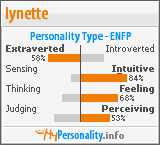Der Erlkönig by Franz Schubert
>> Friday, October 9, 2009
Der Erlkönig (often called just Erlkönig) is a poem by Johann Wolfgang von Goethe. It depicts the death of a child assailed by a supernatural being, the Erlking or "Erlkönig" (suggesting the literal translation "alder king", but see below). It was originally composed by Goethe as part of a 1782 ballad opera entitled Die Fischerin.
The poem has been used as the text for lieder (art songs for voice and piano) by many classical composers, the most famous undoubtedly being that of Franz Schubert, his Opus 1 (D. 328).
Goethe's poem begins with a young boy being brought home by his father. The meaning is somewhat ambiguous, as the word "Hof" has the rather generic meaning of "yard" or "court". In this case, however, it is a short form of "farmyard" (though the long form "Bauernhof" is more common for this sense). The ambiguity about the father's social rank is quite acceptable because any father would have similar feelings about a son or daughter so ill and in pain.
The poem begins by giving the impression that the child is simply dying from a vague, unspecified ailment and sees death as a figment of his imagination. As it proceeds, the poem takes an ever darker twist and ends with the child's death.
One story has it that Goethe was visiting a friend when, late one night, a dark figure carrying a bundle in its arms was seen riding past the gate at high speed. The next day Goethe and his friend were told that they had seen a farmer taking his sick son to the doctor. This incident, along with the legend, is said to have been the main inspiration for the poem.
Some readers, visualising the father's embrace of his ailing son, may assume that the child is sick and in need of medical attention. However, the poem's characterisation of the child's condition is ambiguous.
The poem has been used as the text for lieder (art songs for voice and piano) by many classical composers, the most famous undoubtedly being that of Franz Schubert, his Opus 1 (D. 328).
Goethe's poem begins with a young boy being brought home by his father. The meaning is somewhat ambiguous, as the word "Hof" has the rather generic meaning of "yard" or "court". In this case, however, it is a short form of "farmyard" (though the long form "Bauernhof" is more common for this sense). The ambiguity about the father's social rank is quite acceptable because any father would have similar feelings about a son or daughter so ill and in pain.
The poem begins by giving the impression that the child is simply dying from a vague, unspecified ailment and sees death as a figment of his imagination. As it proceeds, the poem takes an ever darker twist and ends with the child's death.
One story has it that Goethe was visiting a friend when, late one night, a dark figure carrying a bundle in its arms was seen riding past the gate at high speed. The next day Goethe and his friend were told that they had seen a farmer taking his sick son to the doctor. This incident, along with the legend, is said to have been the main inspiration for the poem.
Some readers, visualising the father's embrace of his ailing son, may assume that the child is sick and in need of medical attention. However, the poem's characterisation of the child's condition is ambiguous.
Who rides, so late, through night and wind?
It is the father with his child.
He holds the boy in the crook of his arm
He holds him safe, he keeps him warm.
"My son, why do you hide your face so anxiously?"
"Father, do you not see the Elfking?
The Elfking with crown and tail?"
"My son, it's a wisp of fog."
"You lovely child, come, go with me!
Many a beautiful game I'll play with you;
Some colourful flowers are on the shore,
My mother has many golden robes."
"My father, my father, can't you hear,
What the Elfking quietly promised me?"
"Be calm, stay calm, my child;
The wind rustles through dry leaves."
"Do you want to come with me, dear boy?
My daughters shall wait on you fine;
My daughters lead the nightly dances
And will rock and dance and sing you to sleep."
"My father, my father, can't you see there,
The Elfking's daughters in the gloomy place?"
"My son, my son, I see it well:
The old willows they shimmer so grey."
"I love you, your beautiful form entices me;
And if you're not willing, I shall use force."
"My father, my father, he's grabbing me now!
The Elfking has done me harm!"
The father shudders; he rides swiftly,
He holds the moaning child in his arms.
He can hardly manage to reach his farm;
In his arms, the child was dead.
Franz Schubert : Erlkönig (D328) (from Goethe's Ballade): the incomparable performance of Dietrich Fischer-Dieskau





























2 comments:
Hi Lynette,
I always think there is great menace in this song! Some singers are not as adept at creating the three voices.
No one will ever surpass the great Dietrich Fischer-Dieskau on this Lied!
Post a Comment